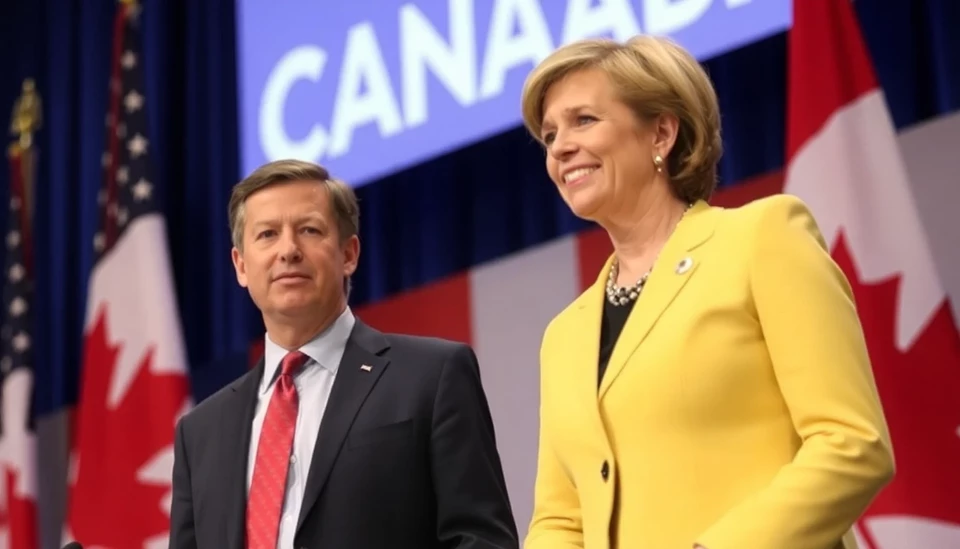
In a strategic move that underscores the escalating trade tensions between Canada and the United States, Canadian officials are preparing to impose tariffs on an extensive list of American products valued at $105 billion. This decision comes in response to the threat posed by former President Donald Trump as he contemplates the reintroduction of tariffs on Canadian-made vehicles, a greatly contentious issue that could provoke retaliatory measures from the North.
According to sources close to the matter, Canadian trade officials are actively finalizing a comprehensive plan designed to cushion the potential economic impact of Trump's proposed tariffs on automobile imports. This development marks a significant escalation in what has been an ongoing trade dispute, characterized by an intricate web of duties and regulations that have strained relationships between the two neighboring countries.
The proposed tariffs from Canada encompass a wide range of goods, including agricultural products, industrial machinery, and electronics. If enacted, these tariffs could significantly affect consumers and businesses in both nations, potentially leading to higher prices and diminished access to certain products. The prospect of a trade war looms large, as both sides prepare for potential fallout from these economic measures.
Canada’s move is a clear signal of its intent to stand its ground against aggressive trade policies and protect its own economic interests. Prime Minister Justin Trudeau has previously asserted that any measures taken by the U.S. would be met with equal force, reiterating the nation's commitment to fair trade practices. This latest development highlights the fragility of the trade relationship between the two countries, which has been historically complex yet interdependent.
The tariffs, should they come to fruition, will reignite debates regarding the implications for the North American Free Trade Agreement (NAFTA), which has already undergone significant changes in recent years with the advent of the United States-Mexico-Canada Agreement (USMCA). Experts warn that heightened tariffs could disrupt supply chains, impact job markets, and ultimately create uncertainties that ripple across both economies.
As negotiations stand, it remains to be seen how the U.S. administration will respond to Canada’s preemptive measures. The implications of such a tit-for-tat strategy could lead to a protracted period of economic uncertainty and instability, as businesses brace for possible repercussions. Stakeholders in both countries are advised to monitor developments closely, as shifts in trade policy can have immediate and lasting effects on market dynamics.
In the face of this evolving situation, businesses are urged to prepare for possible adjustments to their operations and supply chains. The potential for retaliatory tariffs is a significant concern, and it is imperative for companies to remain agile in response to these developments. Trade experts suggest that open lines of communication between Canadian and American stakeholders could help mitigate some tensions and lay the groundwork for more constructive trade relations in the future.
With the January 15 deadline looming for Trump to finalize his tariff decisions, Canadian leaders are weighing their options carefully. The outcome of this standoff will undoubtedly shape the future landscape of trade in North America. The stakes are high, and both countries are at a pivotal juncture, making it crucial for observers and participants in the trade sector to stay informed as this story unfolds.
As the tension escalates between two of the world’s largest trading partners, the ramifications of these tariffs will be felt far and wide. Whether Canada can successfully withstand the pressures of U.S. trade policy remains to be seen, but one thing is clear: the battle over international trade will continue to intensify in the months to come.
Follow the hashtag conversation:
#Canada #USTrade #Tariffs #TradeWar #AutomobileIndustry #EconomicRelations #NAFTA #USMCA
Author: Laura Mitchell




